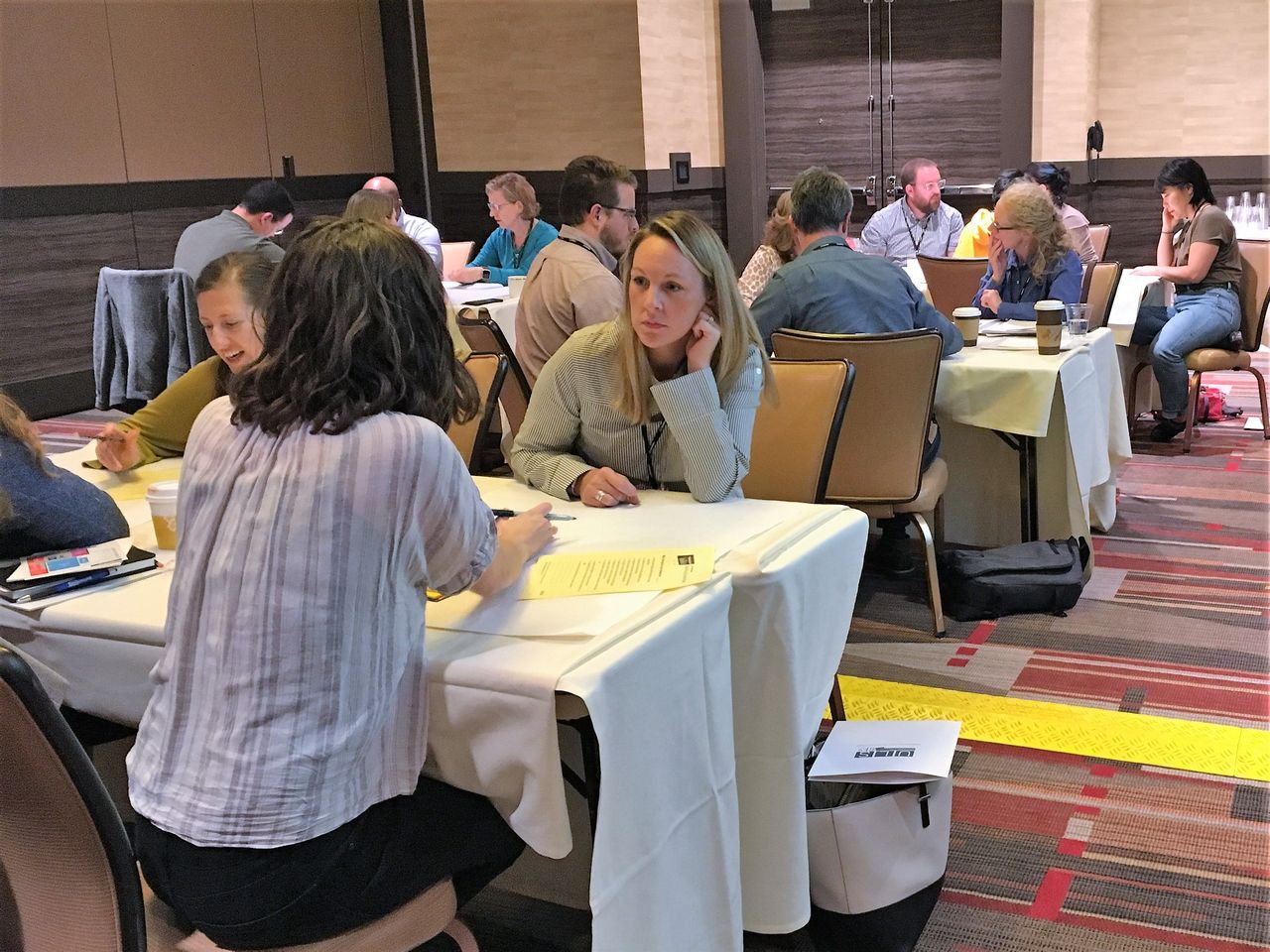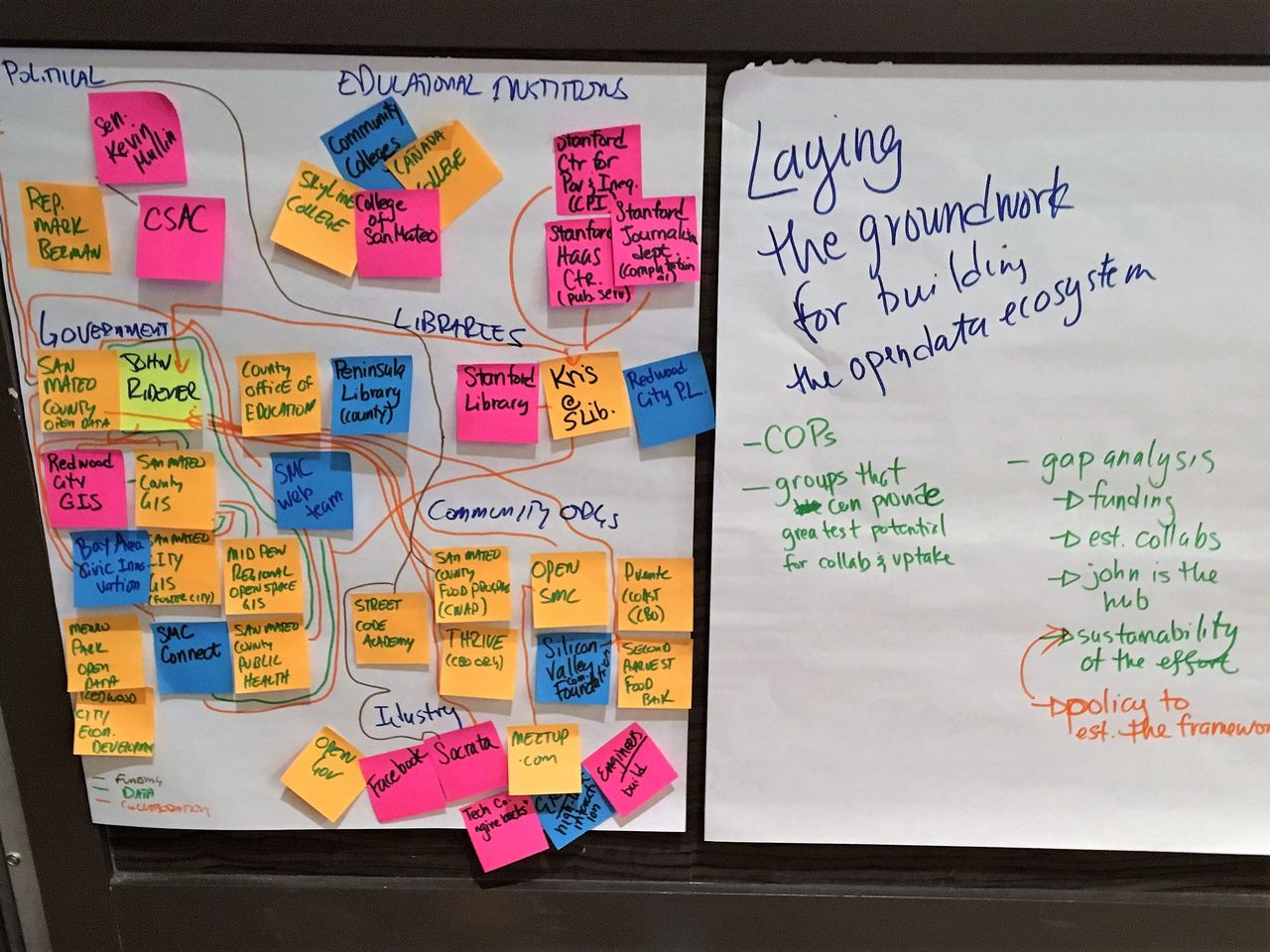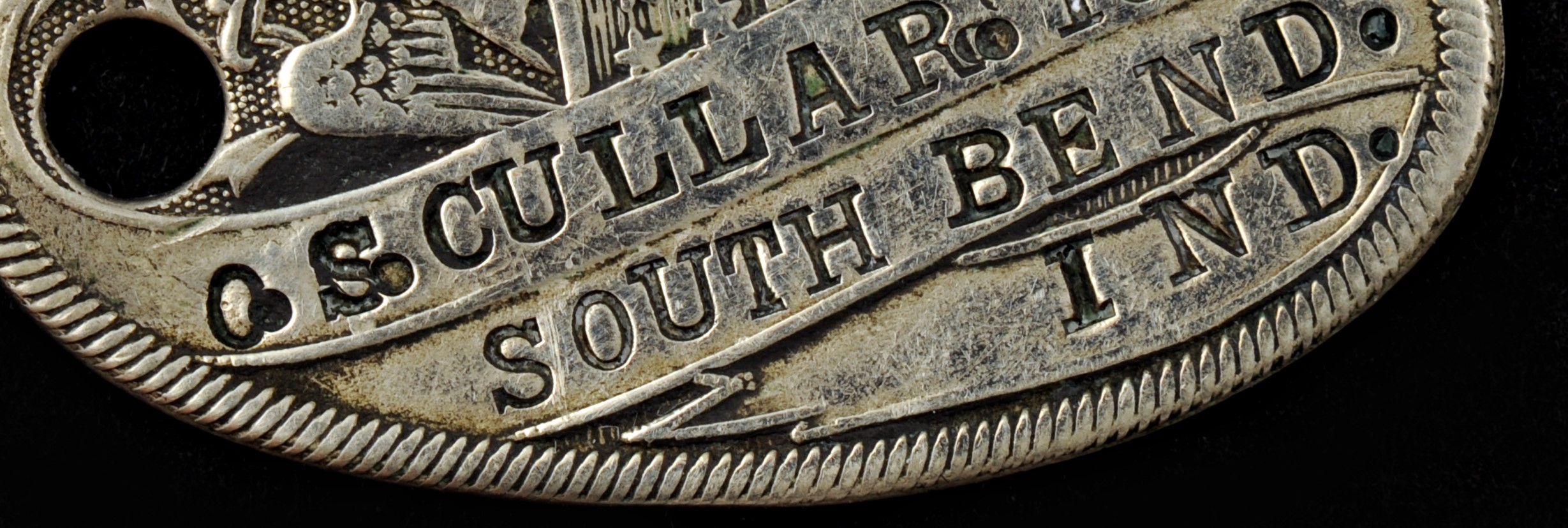On October 13th, the Civic Switchboard team held its second workshop just outside of Las Vegas, before the 2018 Digital Library Federation Forum (DLF). Participants in the workshop represented 11 separate communities around the United States. Once again we were amazed and inspired by the enthusiasm and expertise in the room.

These workshops exemplify our project’s core goals: to bring together librarians and civic data intermediaries from the same geographic community to get a better handle on their own civic data ecosystems, design new local data projects and partnerships, and learn from innovative peers from across the country.
The Las Vegas workshop followed a similar format to our previous workshop held in Atlanta with a few minor tweaks. Towards the end of the workshop we replaced our Birds of a Feather portion with small group discussions (grouped by affiliation, e.g. librarians in public or government libraries, data intermediaries in research or community organizations) allowing participants to discuss common challenges and barriers they face in their respective roles.

To further relationships between library and civic data communities, five civic data intermediaries were able to attend the DLF forum for the remainder of the week. Here are their reflections:
Ramy Kim
Community Organizer, Open Oakland
Oakland, CA
The DLF Forum was a great opportunity for me to learn and share with active members of the library community who cared about equity, narrative, and power. One particular gathering that I was very active in was the ‘Technologies of Surveillance Working Group Discussion.” I appreciated the working lunch format and got to know who was working on issues of privacy at DLF. There were really good conversations about how different technologies were in effect, over-surveilling some of our most vulnerable populations, and it was reassuring to get a sense of the questions that academic libraries were grappling with in that regard. However, it was clear to me that we needed more voices here, and in many other sessions, with representation from public libraries, those public-facing institutions where professionals and paraprofessionals interface with the larger public each day. Specifically, my time with the working group made me pose the question of what public libraries’ roles are in the context of being in a sanctuary city.
Several other opportunities that I’m glad to have had were speakers who touch on digital archiving and metadata, and what that means for future users of digital archives. Archival work is something that I don’t think about very often, though I enjoy the fruits of the labor of archivists frequently. In another session, one speaker talked about 3D preservation as a form of social justice, which gave me a new perspective on physical archiving to spur conditions for justice. I asked about whether open source tools were actively in use to counter re-colonizing 3D knowledgebases. The response: yes, there is a need for open source so that in low-resourced communities, e.g. in the Congo, 3D preservation methods could be more accessible than proprietary software. Clearly, there was a need and a push for viable open source tools that would allow for equitable knowledge creation and distribution in the U.S. and globally.
Lastly, the Community Archives, Labor and Care session that included hyperlocal histories and digital collections interested me because of the storytelling potential of civic data. My main concern as a community organizer in the civic tech community is how to ensure that tools are actually co-created with community members to meet their real needs. Learning about the different ways of data collection from Providence’s Chinatown case study gave me ideas on how to engage and make data come alive through place and narrative.
Many of the takeaways here address what work could be done outside of the academy, which I think is crucial when we are talking about open data and civic engagement. Questions regarding archiving, metadata, and so much more, apply to civic technology and its methods and the DLF communities of practice demonstrated that these questions are being asked in the daily work of knowledge production and keeping. These lessons can be applied to data collection, storage, and analysis, as my partners at Oakland Public Library and members of OpenOakland strive to be thoughtful stewards of the digital information, to ultimately help the constituents of the city use these data for their lived experience, especially in a place where the digital divide is so pronounced.
John Ridener
Open Data Community Liaison, San Mateo County Government
San Mateo County, CA
The DLF Forum was a great opportunity for me to reconnect with my professional library roots and provided a useful bridge to my current local government data work. It was great to see so many library professionals discussing new and innovative approaches to data both within and outside of their institutions and collections. I was inspired by the welcoming atmosphere, positive tone, and genuine interest attendees showed for my and others’ work at the Civic Switchboard workshop and DLF Forum. I didn’t have any expectations (in a positive way) of the conference. I was happy to be invited and participate as a cross-pollinator.
I was particularly inspired by the collections as data panel. As someone who plays a role similar to a librarian in a non-library context (open data program manager for local government), I was heartened to see the priority given to the data content in collections. I was also excited to hear about the variety of ways the panelists approached issues in using collections as data in their work. It was great to meet a few of the panelists after the talk and further discuss their work with institutional repositories and make connections that will further my collaborative work with their institutions to create a more viable data ecosystem.
Our open data program is well established and is in need of some reinvigoration. Participating in conferences and workshops like the DLF Forum/Civic Switchboard as a cross-pollinator has given me the opportunity to connect with others doing similar work and understand other programs’ challenges. These connections have helped contextualize my work on local government open data and data use. We’re all working hard at strategically making it up as we go along and the DLF Forum was a great opportunity to see the creativity and innovation contributing to our communities of data publishing and use.
My team identified a few opportunities to engage in furthering our data use ecosystem work. Mapping our data ecosystem helped surface two important issues around funding and staffing. We realized we need to spread our responsibilities across both of our data communities in order for our data ecosystem to become sustainable. Through working with partners in both the library and local government communities, we hope to improve connections and strengthen the connections between data publishers, libraries, and students, faculty, and researchers.
I appreciated the invitation to stay for the DLF Forum after the Civic Switchboard workshop. Many of the talks and panels I attended weren’t directly related to my open data work, but I was very appreciative of the diversity of approaches to data curation, documentation, discovery, and data use on display throughout each session I attended. Thank you for encouraging cross-pollinators to stay for the entire conference!
Jie Wu
Kinder Instutute for Urban Research, Rice University
Houston, TX
Prior to attending the DLF Forum, I didn’t fully understand the library’s role in the local civic data ecosystem. As the non-library civic data intermediary partner on the team, I had the opportunity to stay on the conference for two days and attended several sessions. In particular, I wanted to learn more about the evolving role of the metadata librarian, and library’s involvement in mapping, building data frameworks and metadata workflow.
Our library partner, Dr. Lisa Spiro, got me familiar with the conference setup and introduced me to a couple of metadata librarians and cataloging and metadata service specialists. As a cross-pollinator, I noticed that the atmosphere at the DLF Forum and the NNIP meetings are both very friendly and welcoming. I also noticed that some of the academic libraries and public libraries have been engaged in activities very similar to what a data intermediary does. For example, a data intermediary could learn some practical data curation skills, technologies and guidelines from academic library staff in the Data Curation Network. The two sessions I attended on the first day of the conference were focused on mapping and GIS systems, as well as data curation practices. I found the information presented by the speakers very helpful. Some of the advice and best practices can be applied to our data repository work, namely, the Kinder Institute Urban Data Platform. I would definitely share the information with my colleagues and connect them with the right contact in the network.
In the last two decades or so, more and more libraries provide digital resources. The title “metadata librarian” reflects a shift in library technology and an increase in digital library initiatives. We may set up meetings with the metadata librarians at the Fondren Library to share best practices at regular basis.
In addition, a library and a data intermediary might both aim to improve data literacy in the community, although they sometimes use different jargon to describe the approaches. Identifying a gap in the local civic data ecosystem, we hope to partner with Fondren Library to offer data literacy workshops and accompanying online learning materials for nonprofits in the Houston area in 2019. In sum, I am inspired by the variety of work done by library staff and look forward to the partnership with our academic library in the near future.
Heather Crondahl
Analyst/Programmer, Office of Governor
Juneau, Alaska
There are currently many areas of practice contributing to the digital transformation (DT) conversation – How to transform business processes to take advantage of innovative new technologies that provide value to an organization or civic group. Each area of practice has its own perspective and sheds light on a piece of the overall solution. Data science folks focus on transforming data into actionable insights, while Web 3.0 practitioners focus on modeling, classifying and describing data so it can be understood by machines. The DLF Forum added another key topic to this conversation by focusing on how libraries will help us better understand the ecosystem of data usage. This brought about a good deal of discussion around the challenges of identifying valuable datasets and the often-difficult process of getting them released for use in the civic realm and for economic development.
In an effort to fill these gaps in our value chain, our state’s data hub project (a state government/library partnership) has decided to focus on bringing community, government and economic development partners together to begin developing a common understanding of the value of public data to civic organizations and businesses. This workgroup will develop a roadmap of projects (case studies). The case studies will release data through the hub, and then use the data in business plans or civic initiatives. Data will be kept on each study so that a cost/benefit can be released in the final report, which will be made publicly available so that the community can learn from effort.



